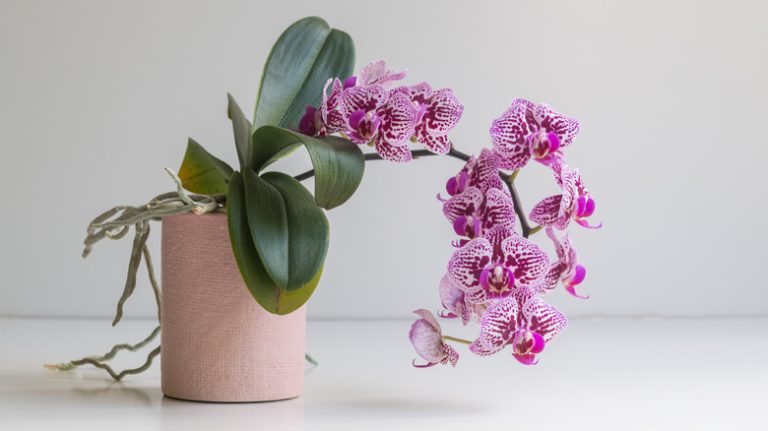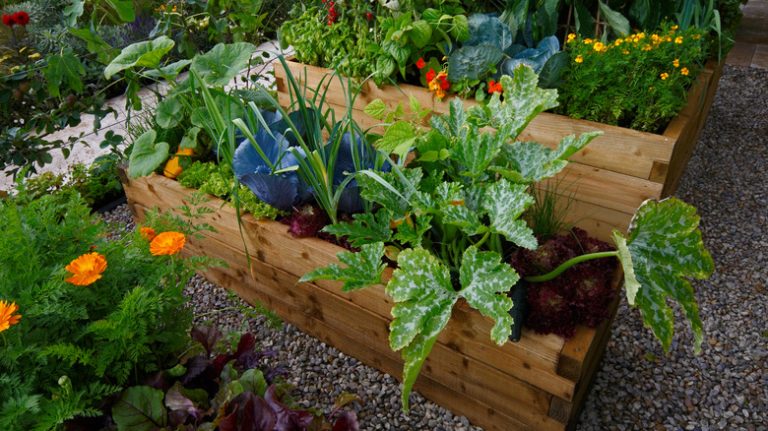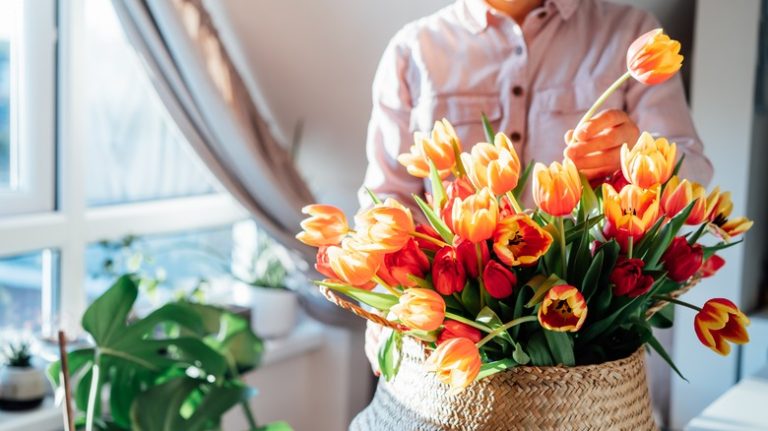There are various things to know before you plant lavender, including what plants you might want to grow beside it to help it survive and thrive in your garden. One of these, Sage, is a companion plant that your lavender will surely love as much as you do. Whether you grow your lavender plants in the ground as a border or prefer them in pots placed around your outdoor space, simply place sage next to it, and they will double up on fighting power when it comes to warding off unwanted pests and critters.
An herb that tastes as good as it smells, some varieties of sage can be grown to use in your own kitchen, while others are used medicinally — as well as versions that simply add a gorgeous ornamental touch to your greenery. A perennial plant, it’s certainly worth growing each year, especially if it’s beside lavender. Producing green leaves that have a tinge of gray, they can also boast flowers in shades of blue, pink, purple, and white. Of course, to see this growth, you need to make sure that you’re planting and growing your lavender-benefitting sage in the right conditions.
What growing conditions do lavender and sage prefer?
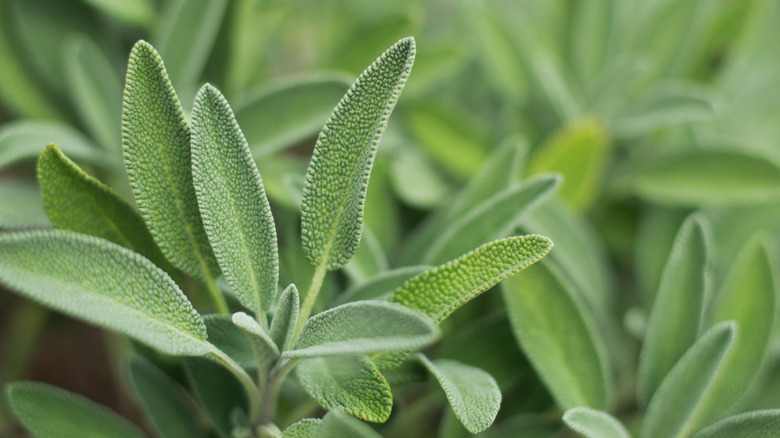
As you might expect, lavender and sage appreciate similar growing conditions. Just consider that sage grows best in USDA hardiness zones 4 to 10, while lavender will thrive in zones 5 to 10. On top of that, both should get a spot in your yard that receives full sun for 6 to 8 hours a day, and they need to be placed in soil that drains well and doesn’t become too wet. For the area around the lavender, you will also want to make sure to remove any weeds that pop up and potentially add mulch to keep the unwanted plants from growing back. Just be sure that the mulch doesn’t touch the base of the plant, as it can make it too moist, which isn’t ideal for its growth.
Another aspect that lavender and sage share is the fact that when planting them, you should keep them at least 2 feet apart so that they don’t become crowded. If you want to add a few more companion plants in the area, then you can choose from a few popular options, including cabbage, carrots, cucumbers, and rosemary. You can also opt for different kinds of sage to grow with your lavender.
Different kinds of sage to accompany your lavender
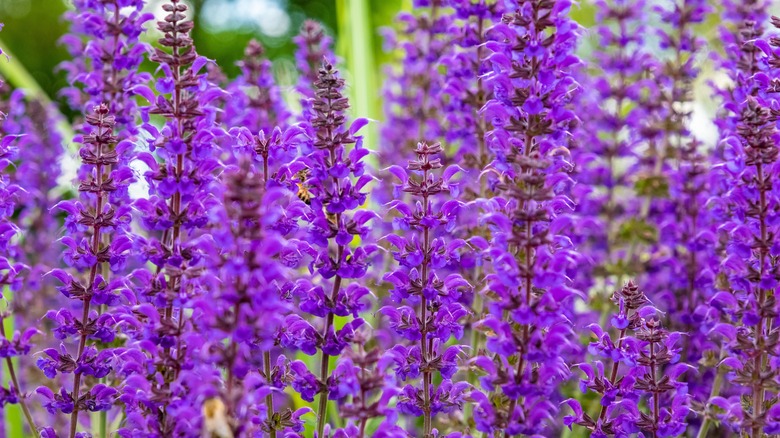
Growing sage alongside your lavender as a companion plant may sound simple, but first, you need to decide which kind to grow. There happens to be a wide range of varieties to choose from, including common sage (Salvia officinalis), which you can use in your savory meals. If you like the idea of culinary options, you might also be interested in purple garden sage (Salvia officinalis Purpurascens), golden sage (Salvia officinalis Icterina), and tricolor sage (Salvia officinalis Tricolor).
Although many of the over 900 species of sage have been known to ward off harmful fungal and bacterial diseases in plants, if your interest is piqued by purely ornamental sage, then you still have plenty of options. You might want to opt for Pineapple sage (Salvia elegans) that produces radiant red flowers or Grape-scented sage (Salvia melissodora), which may not actually smell like the fruit it shares a name with but does have lovely little purple-blue blooms, or possibly Scarlet sage (Salvia splendens) that grows flowers in that exact color. You surely don’t want to forget about Mealycup sage (Salvia farinacea), which will impress you with its blue, purple, and white points, and Mexican bush sage (Salvia leucantha), which sticks with purple and white shades. Each option is just as gorgeous as their companion plant, lavender.

